Second Mars Advanced School in China, 12-22 September 2011
This second Mars School is particularly timely for Europe-China collaboration in Mars Exploration. Yinghuo-1 (YH-1), a Mars orbiter, is planned to piggyback on the Russian mission Phobos-Soil (Phobos-Grunt). The two are scheduled to launch from Baikonur in November this year. The YH-1 orbiter carries a suite of instruments that will study the Martian plasma environment, the ionosphere and martian weather in detail.
Sixteen lecturers, eight each from Europe and China, will deliver lectures on topics covering: Martian interior, geology, mineralogy, astrobiology, atmosphere, aeronomy and comparative planetology, as well as Mars missions and instruments. The programme combines theoretical lectures as well as practical sessions. About 50 graduate and postgraduate students, as well as researchers, are expected to attend.
Biographies of the lecturers and details of the course content for the Second Mars Advanced School in China can be found in the school booklet (linked in the right-hand menu).
|
Lecturers at the Mars Advanced School in China |
|
From Europe |
 |
Agustin Chicarro Agustin Chicarro is the European organiser of the school. He will lecture on comparative planetology, ESA's Science Programme and ESA's Mars Exploration missions, as well as geological treasures of East Asia, and Chinese cultural heritage (for the European lecturers). |
|
Andrew Coates Andrew Coates will cover the topics of the Martian ionosphere; Mars - solar wind interactions; atmospheric escape; and comparative plasma interactions. |
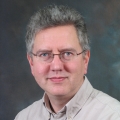 |
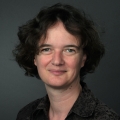 |
Doris Breuer Doris Breuer’s lectures will cover the following topics: interior structure and composition; mantle dynamics and thermochemical evolution; magnetism and magnetic field generation. |
|
Damien Loizeau Geological endogenic processes on Mars; geological exogenic processes on Mars; impact cratering on the terrestrial planets; and the search for landing sites on Mars are the topics that will be covered by Damien Loizeau during his lectures. |
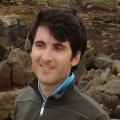 |
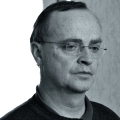 |
Director of the IDES (Interaction and Dynamics of Surface Environments) laboratory at the University of Paris-Sud at Orsay, France Eric Chassefière will lecture on atmospheric structure and dynamics; atmospheric chemistry and cycles; climates of Mars and Venus; and methane on Mars. |
|
Head of the Exobiology Group at Centre National de la Recherche Scientifique, Orléans, France Frances Westall’s lectures will cover planetary habitability and the origins of life; extremophiles, evolution of life and the search for life; geological history of the Earth; and astrobiology field data and techniques. |
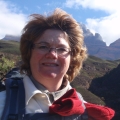 |
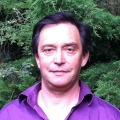 |
Patrick Pinet At the Second Mars Advanced School, Patrick Pinet will share his knowledge of the principles of spectroscopy, mineralogy and Mars evolution, planetary regolith, optical properties and surface changes on Mars. |
|
Stanislav Barabash Stanislav Barabash will speak on instrumentation for space plasma measurements; development of space instrumentation; planetary landers; and the Phobos-Soil (Phobos-Grunt) mission. |
|
|
From China |
|
|
Ji Wu |
|
Lidong Xia Lidong Xia will present an overview of space science activities in Shandong University at Weihai. |
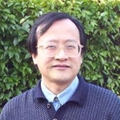 |
|
|
Cheng-Li Huang The contribution of Yinghuo-1 to the Martian gravity field model is the topic of Cheng-Li Huang's talk. |
|
Han Li Han Li will lecture on ice-related morphological features on Mars. |
|
|
|
Hua Zhao The contribution of Yinghuo-1 to the Martian gravity field model will be the topic of Hua Zhao's lecture. |
|
Xiong Hu Xiong Hu will deliver a lecture on the topic of 'Martian radio occultation experiments with the Yinghuo-1 mission'. |
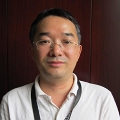 |
|
|
Lei Li Lei Li's lecture is on the Plasma Experiment onboard the Yinghuo-1 Mars Orbiter. |
|
Wing-Huen Ip Wing-Huen Ip will lecture on the effects of space weather at Mars. |
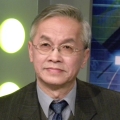 |
The lectures will begin with an overview of the YH-1 mission as well as of the ESA Science and Robotic Exploration Programmes, setting the context for the topical lectures. The latter will be complemented by inputs on the related aspects of the Yinghuo-1 mission. The full schedule is available via the links to the right.
Some evenings will feature cultural events. The weekend between lectures will provide an opportunity for an excursion to Liugong island and Penglai city near Weihai.
This biennial Mars Advanced School continues a tradition of fruitful collaboration between European and Chinese planetary scientists. Holding this School in China provides access for interested students to expertise that is often difficult to acquire.
The Mars Advanced School in China is sponsored this year by ESA and the Chinese Academy of Sciences. The School is organised by the Center for Space Science and Applied Research (CSSAR), Beijing; the National Astronomical Observatories (NAOC), Beijing; Shanghai Astronomical Observatory (SHAO), Shanghai; the Shandong University at Weihai, and the National Central University (NCU), Taiwan.






